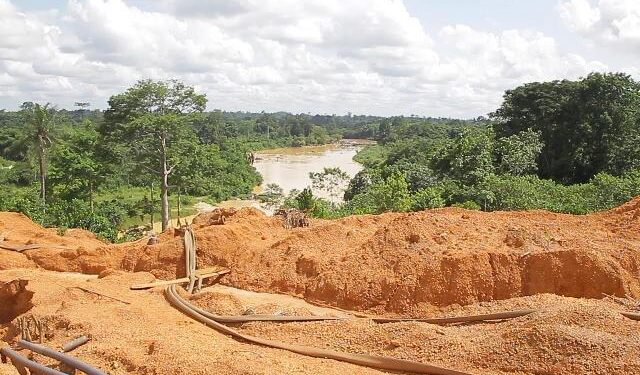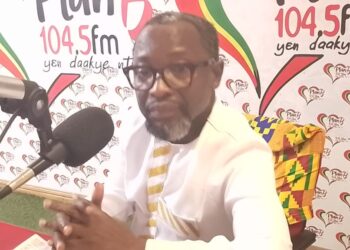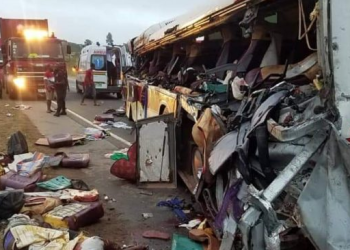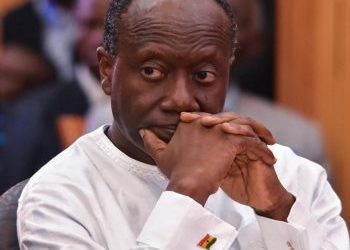The government’s narrative of success in the fight against illegal mining (galamsey), was sharply challenged Friday evening (October 3), immediately following a high-stakes stakeholder meeting at the Jubilee House.
Mr. Daryl Bosu, Deputy Director of the environmental advocacy group A Rocha Ghana, dismissed the presentation to President John Dramani Mahama and Civil Society Organisations (CSOs) as a sanitised version of reality, asserting that the progress claims do not align with the devastation and suffering on the ground.
Speaking on Citi Eyewitness News shortly after the October 3, 2025, engagement in Accra, Mr. Bosu delivered a scathing assessment, stating that the reports presented were a blatant misrepresentation of the crisis.
“If you really are going to be very truthful and face the fact. If you go to the communities and hear the stories of frustrations, the stories of intimidations from illegal miners whatever we heard on the screens or saw on the screens today is not a true reflection of the sentiment of the people who are feeling the brunt of the illegal mess,” he declared.
The Unreported Crisis: Facts and Figures from the Field
Mr. Bosu’s remarks echo concerns raised by a coalition of environmental groups, which estimate that over 1.2 million hectares of farmland have been destroyed by illegal mining, displacing an estimated 500,000 farmers and threatening Ghana’s food security.
The crisis is not just ecological but a public health emergency, with recent reports indicating mercury levels in some mining area soils at 560% above safety limits, and arsenic in water sources up to 330 times higher than national standards.
A Rocha Ghana’s core argument is that the government’s efforts remain trapped at the ministerial and security levels, failing to translate into tangible relief for affected communities.
Key points of failure highlighted by Mr. Bosu that were not adequately captured in the government’s presentation include:
- Shutdown of Critical Water Infrastructure:The persistent pollution of major river bodies like the Pra, Ankobra, and Birim has repeatedly forced the Ghana Water Company Limited (GWCL) to shut down key water treatment facilities. In early 2025, for instance, the Bonsa Headworks—which supplies 75% of potable water to Tarkwa and its environs—was temporarily closed due to severe river contamination, a clear figure of data that contradicts a success narrative.
- Escalating Cost of Living: The contamination means that treatment plants must use more chemicals and energy to clean the water, a cost GWCL has warned is ultimately passed on to the consumer through higher tariffs. This makes clean water a growing economic burden for the average Ghanaian household.
- Community Intimidation: The Deputy Director stressed the continued physical and psychological threat faced by local populations. Reports suggest that in mining hotspots, citizens who speak out face intimidation and violence from illegal operators, a significant social cost that was glossed over in the official meeting.
“The water pollution in communities, the shutdown of water treatment facilities and all of that is not representative of what we heard today. So whatever the government says it is doing it is about time we see it reflect in the true state of affairs on the ground,” Mr. Bosu added, calling for a radical shift in strategy.
The meeting with the CSOs was part of a broader government drive to review and fortify its policy on illegal mining.
However, the strong rebuke from A Rocha Ghana, an organisation deeply involved in the anti-galamsey movement, casts serious doubt on the effectiveness of the current approach and highlights the widening disconnect between political promises and the ecological reality facing the nation.
Source: Myjoyonline.com










Discussion about this post